On Thursday night, we drove north for hours, through narrow country lanes hemmed in by hedges, past rolling green hills dotted with sheep. A sliver of moon rose, low and golden, following us as we continued up the coast. We arrived at the Island of Anglesey, parked by a beach with a sky full of stars, and headed off to bed.
I was in Anglesey to meet up with a group of volunteers from the Ramblers. The Ramblers is an organization dedicated to walking, with radical, working class roots. In the 1800s, thanks to urban migration, walking in the country became an increasingly popular past-time as people searched for an escape from the crowding and pollution of cities. At the same time, Parliament was passing an increasing number of bills to enclose the countryside — this meant literally fencing off formerly communal or open access lands, essentially turning them from various degrees of public space into private space. By the early 1900s, over 20% of England was enclosed. Parts of the countryside that had been accessible for centuries was suddenly closed off, at a time when it was needed more than ever.
While the purpose of the enclosure movement was ostensibly to make agriculture more efficient, rich people used it to their personal benefit. The Duke of Devonshire, for example, used his land for grouse shooting and used game wardens to patrol the land and keep walkers out. In 1932, an organization of working people decided they’d had enough of this, and organized a mass trespass on the Duke’s land.
The walkers of the Kinder Scout Trespass, as it came to be known, were met by violence from the game wardens. Some of the walkers were arrested and sent to jail. While some walking groups were against the radical tactic of trespassing, they were outraged at the treatment of their fellow walkers. Thus a movement for access to the countryside was born.
The Ramblers became the main organization dedicated to fighting for access to the countryside. Today, the Rights of Way in England and Wales (Scotland has different laws) allow the public access to 140,000 miles of paths. The paths are recorded on a The Definitive Map, and the map can be updated at any time as long as there’s sufficient evidence of public use.
The legal Rights of Way mean nothing, though, if the paths can’t be physically accessed. That’s why every week, a group of Angelsey Ramblers meet up and do path maintenance. On Friday, Andy dropped me off in front of an old farm house, where I met up with a group of a dozen retired men - and one woman who thanked me for doubling the female contingent - along with 2 government workers, who are part of Angelsey Council’s Rights of Way team. After loading up with tools and supplies, we set off across a field full of sheep until we came to a wall. Beyond the wall was a path, but the steps over the wall were in bad condition, and the path was so overgrown it was almost impassible.
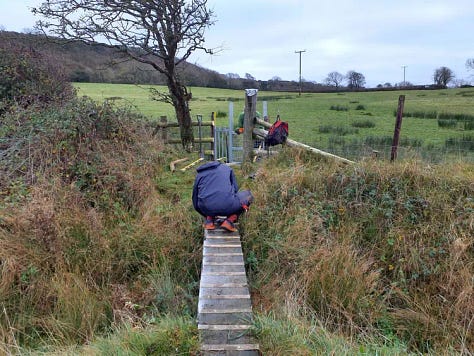
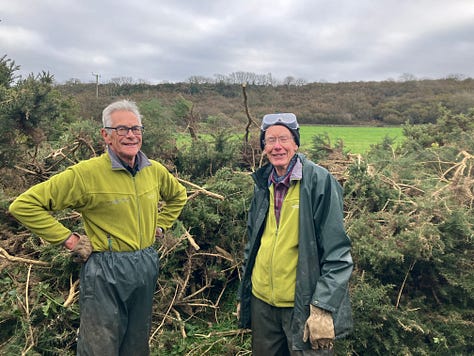
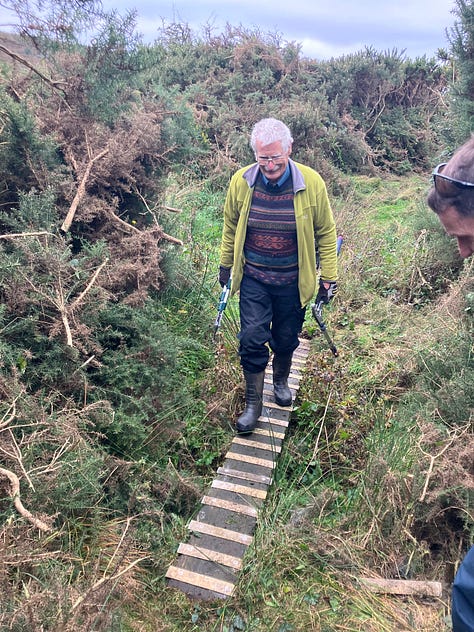
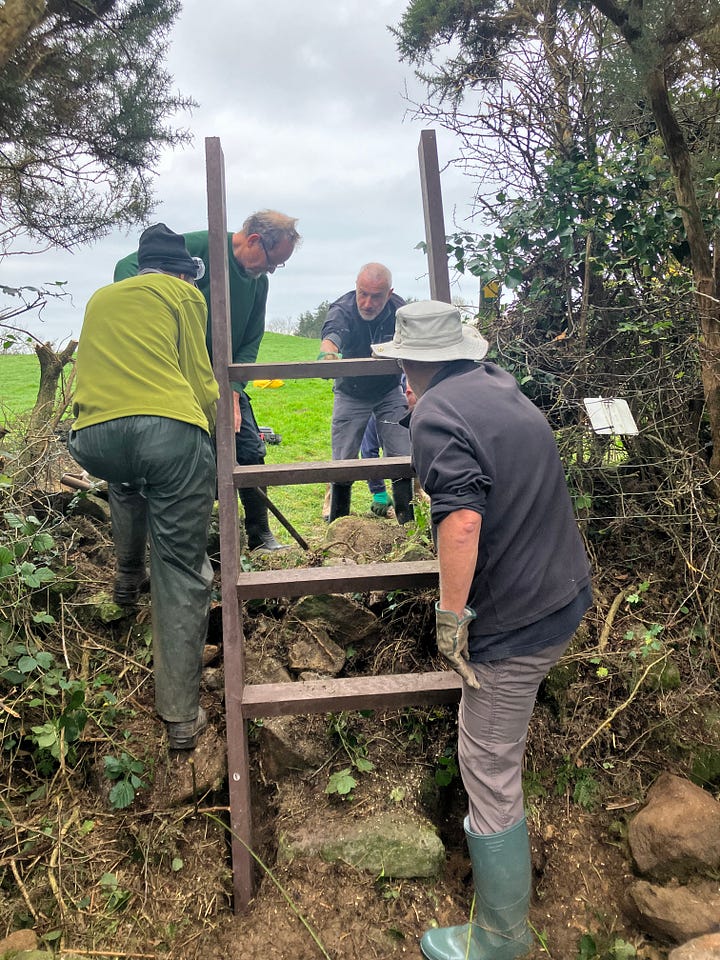
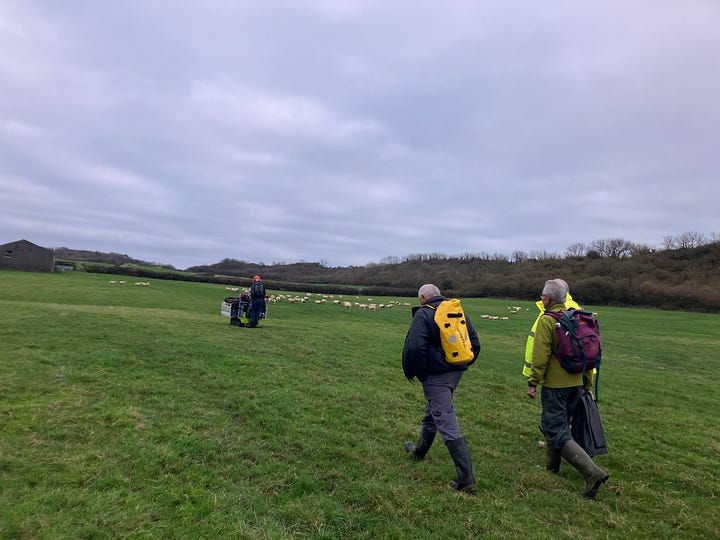
Everyone set to work, and in four hours there were new steps over the wall, a new sign post, the path was clear of brush, safety grips were on the bridges, there was a new sign post, and a new gate and bridge were installed. Nobody I talked to had been on this path before, but all seemed to take great satisfaction in knowing that it would be much better maintained for whichever walkers came after.
All of the work we did was on private land. Landowners are responsible for maintaining the Rights of Way across their land or allowing the local government access to do the maintenance. The Rights of Way team for the Angelesey Council (which used to be 18 people but is now only 5 - thanks austerity) is charged with enforcing access to the Rights of Way and maintaining the island’s Definitive Map — and have significant legal tools to do so.
Ninety years ago, a group of workers decided it wasn’t right that a few rich people should have exclusive access to land that had been part of the commons for centuries. Thanks to their activism, you can now drive down a little country lane on an island in Wales and walk through a field surrounded by mountains and gray skies and know that thousands of people and decades of work brought you here.
Given what happened on Election Day, I felt hesitant about continuing to write or even be on this trip. The terrible enormity of these results made writing about my little walks seem frivolous, irrelevant, self-indulgent.
But I have an almost pathological inability to think or do things that shitty people tell me to. Authoritarians want us to feel despair and hopelessness and to take away our joy. Fuck that.
I’m on this journey thanks to a fellowship to study walking. I deliberately chose a topic that has nothing to do with being an organizer. I was so burned out from work and needed to do something radically different to restore myself. But I can’t seem to stop bumping into it on this trip.
While we were in Porto, Portugal was celebrating the 40th 50th anniversary of its people-powered Carnation Revolution that toppled its dictatorship. While researching the Ramblers, I learned that the Kinder Scout Trespass was led by worker leaders, some of whom went on to fight fascism during the Spanish Civil War. All of the signs in Wales are in English and Welsh because Welsh language activists in the 1960s and 70s fought to preserve their language - doing everything from not obeying court summons because they were only in English to blowing up TV station transmitters in a campaign for a Welsh language TV station.
It’s not an easy time to be an optimist. Luckily I’ve never really been one. But these little walks have made it easy to be hopeful. They are a reminder that most of the things that are good in this world exist because people organized and fought for it.







LOVE
No better time to keep on walking!